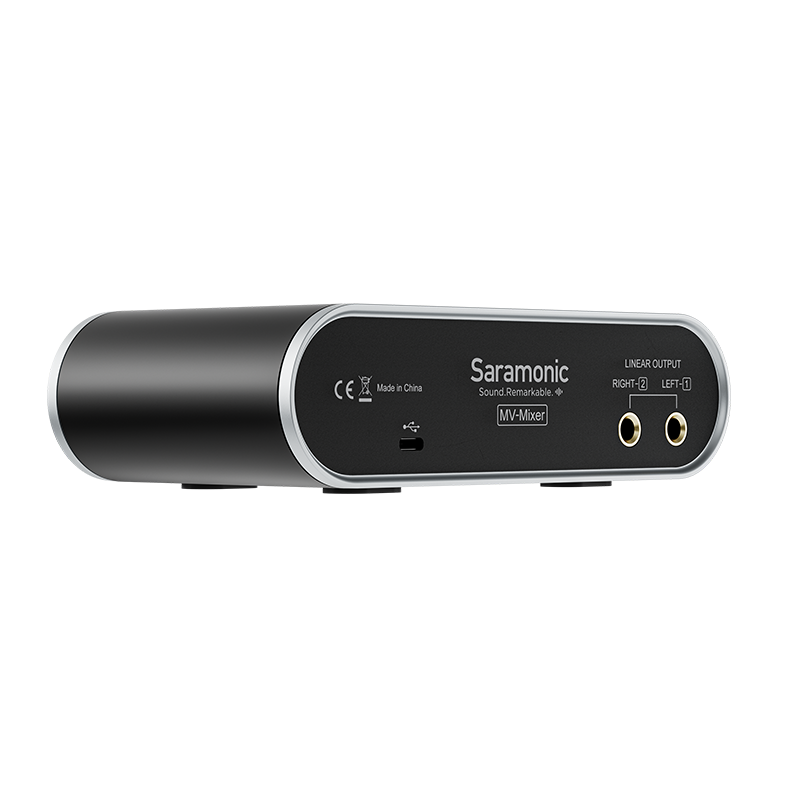Unlock the Secrets: Discover the Ultimate Guide to Choosing the Perfect Audio Mixer!
Audio mixers play a pivotal role in various audio production settings, from live performances and recording studios to broadcasting environments. They serve as the central hub where audio signals are combined, manipulated, and enhanced, ultimately shaping the sound that audiences experience. Selecting the right audio mixer is crucial, as it can significantly influence sound quality, clarity, and the overall production value. In this article, we will delve into the essential features, benefits, and diverse uses of different types of audio mixers, equipping you with the knowledge to make an informed decision that best suits your audio needs.

Understanding Audio Mixers
An audio mixer, often referred to as a mixing console or mixing board, is an electronic device that allows users to combine multiple audio signals. These mixers facilitate the adjustment of various elements of sound, including volume, tone, and effects, to create a balanced final output. Key components of an audio mixer include channels, which handle individual audio signals; faders, which control the level of each channel; equalizers (EQ), which adjust the frequency levels; and various effects processors that can enhance the sound. Understanding these basic components and functions is essential for anyone looking to work in audio production, as they form the foundation of how sound is created and manipulated.
Types of Audio Mixers
Audio mixers come in several varieties, each designed to cater to specific needs and environments. The three main types are analog mixers, digital mixers, and powered mixers. Analog mixers are renowned for their warm sound and straightforward operation, making them a favorite among traditionalists. Digital mixers, on the other hand, offer advanced processing capabilities and onboard effects, making them ideal for complex audio setups. Powered mixers include built-in amplifiers, which make them an excellent choice for small venues and portable applications. Each type has its advantages and is suited for different use cases, so understanding their unique features is crucial when selecting the right mixer.
Analog Mixers
Analog mixers are prized for their simplicity and the warm, rich sound they produce. They typically feature physical knobs and faders that provide tactile feedback, allowing for intuitive control during live performances or recording sessions. These mixers excel in straightforward audio setups, such as small bands performing in local venues or recording in a home studio. Their straightforward design can also be more forgiving for beginners, making them a popular choice for those just starting in audio production.
Digital Mixers
Digital mixers have revolutionized the audio production landscape with their advanced features and capabilities. They offer precise control over sound processing, including built-in effects like reverb and delay, and allow for easy integration with digital audio workstations (DAWs). These mixers are particularly beneficial in complex live sound situations or studio environments where multiple inputs and outputs must be managed efficiently. Their flexibility and versatility make them a preferred choice for professional audio engineers and sound designers.
Powered Mixers
Powered mixers are unique in that they incorporate an internal amplifier, eliminating the need for an external power source. This makes them particularly useful for small venues, mobile setups, or events where space and equipment transport are considerations. They are often used in school auditoriums, community events, or small band gigs, where ease of setup and portability is a priority. Their all-in-one design simplifies the mixing process without sacrificing sound quality.
Key Features to Consider
When choosing an audio mixer, several key features should be taken into account to ensure you select the right one for your needs. First, consider the number of channels you require; more channels allow for more audio sources to be mixed simultaneously. Onboard effects can enhance your sound significantly, so look for mixers that offer a variety of built-in effects. Connectivity options, such as USB interfaces and XLR inputs, are crucial for integrating with other equipment. Finally, the ease of use is essential, especially for beginners; a mixer with an intuitive layout can greatly enhance your mixing experience and efficiency. Assessing these features will help you select a mixer that aligns with your production goals.
Benefits of Using the Right Audio Mixer
Selecting the right audio mixer can yield numerous benefits, significantly impacting your audio projects. A quality mixer improves overall sound quality, allowing for clearer, more balanced audio that enhances the listening experience. The versatility offered by the right mixer enables users to adapt to various applications, whether it’s live sound reinforcement, studio recording, or broadcasting. Furthermore, investing in a quality mixer can provide long-term value, reducing the need for frequent upgrades and repairs. By making an informed choice, you can ensure your audio production meets professional standards and satisfies your creative vision.
Final Thoughts on Choosing an Audio Mixer
In conclusion, understanding the different types of audio mixers, their features, and the benefits they offer is essential for anyone looking to enhance their audio production capabilities. Whether you’re a musician, audio engineer, or hobbyist, selecting the right audio mixer can make a significant difference in the quality and versatility of your sound. As you assess your specific needs and consider the various options available, remember that the perfect audio mixer is one that aligns with your unique requirements and creative aspirations.









